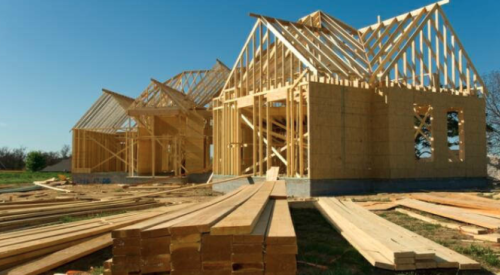| Heather McCune, Editor in Chief
|
Not knowing costs a lot. Time expended, dollars wasted, morale ruined, employees lost, customers disappointed. Measure it how you will, but no matter which variable you choose, the costs add up fast. Not knowing happens to individuals, organizations and industries. Each pays the dumb tax - the price of ignorance - and only the multiple changes.
At the individual level, most often time and morale - and sometimes money - hit the ledger. Organizations face a bigger bill, usually on every front. When an entire industry learns a better way the hard way, recovery is measured in years and millions or billions of dollars.
Consider this issue your invitation to skip some of the home builder dumb tax, move directly to go, and collect the rewards that come with knowing how to satisfy customers and how to turn their satisfaction into more referrals. This month's cover story on winners of the NRS Award in Homeowner Satisfaction features the companies that scored highest among all entrants. Winning in customer satisfaction, of course, means measuring, but what gets an organization to that winning score is what this issue is all about. When we launched this award with NRS last year, our intent was to change the way our industry thinks about customer satisfaction data.
Every aspect of home building affects customer satisfaction. Buy land wrong, and the new home value equation gets out of whack for the buyer. Put the wrong product on the right piece of land, and watch how quickly would-be customers turn away. Pick a product that fails to perform or a trade that refuses to read installation instructions, and prepare for some long, dark days. Fall victim to too many weather delays, product back orders or C crews and can't close a home on time, and stand back as your happy home buyer transforms into someone very different and very dangerous.
Superior customer satisfaction begins with superior customer knowledge. It means knowing - not thinking you know, but having the data to support a gut instinct - what matters to buyers before building. Which floor plans appeal to your target? Conventional suburban development, TND or mixed-use? Age-targeted or age-restricted? Attached or detached? The list of must-knows goes on and on, and without this knowledge upfront, the customer satisfaction measurement data on the back end won't add up either.
The learning - and the need for teaching - accelerates once a buyer enters the picture. Acting early and often on the buyer's need for real, predictable information separates the best in customer satisfaction - in this study as well as in J.D. Power's. At Pulte Homes, the biggest GIANT on PB's 2003 list, bigness does not interfere with customer communication, relationship management or, in the end, customer satisfaction. As senior editor Bill Lurz so aptly puts it, Pulte's Phoenix division functions as the "biggest little builder in America."
What does this focus on telling and teaching its customers - the good news and the bad - get Pulte? More. More customers. More revenue as less money is spent acquiring new home buyers. The numbers speak for themselves: More than 96% of Pulte's Phoenix customers say they "would recommend" the builder, and 92.6% have made at least one recommendation. More than 32% have recommended Pulte four to six times to others in the market for a new home.
Measuring customer satisfaction leads to superior customer satisfaction, which means more business. Best-in-class builders leverage happy homeowners into more home buyers. In an organization such as Pulte Homes, best in Phoenix quickly becomes best in every other market as sharing what works from one division to the next defines its corporate culture.
The NRS Award winners set the bar for our industry. Learn from them, for your customer already might have.












